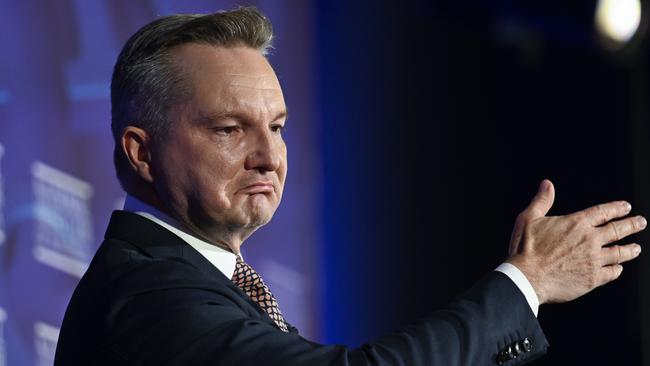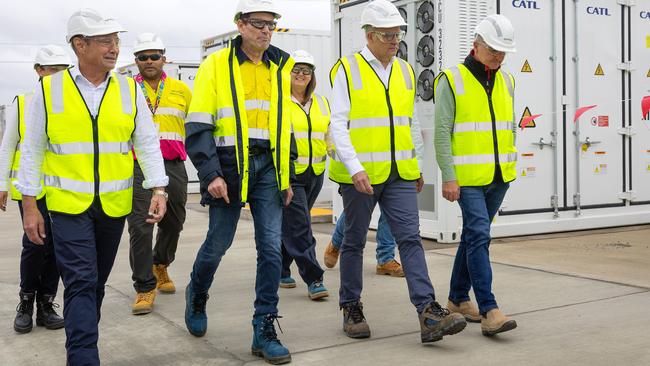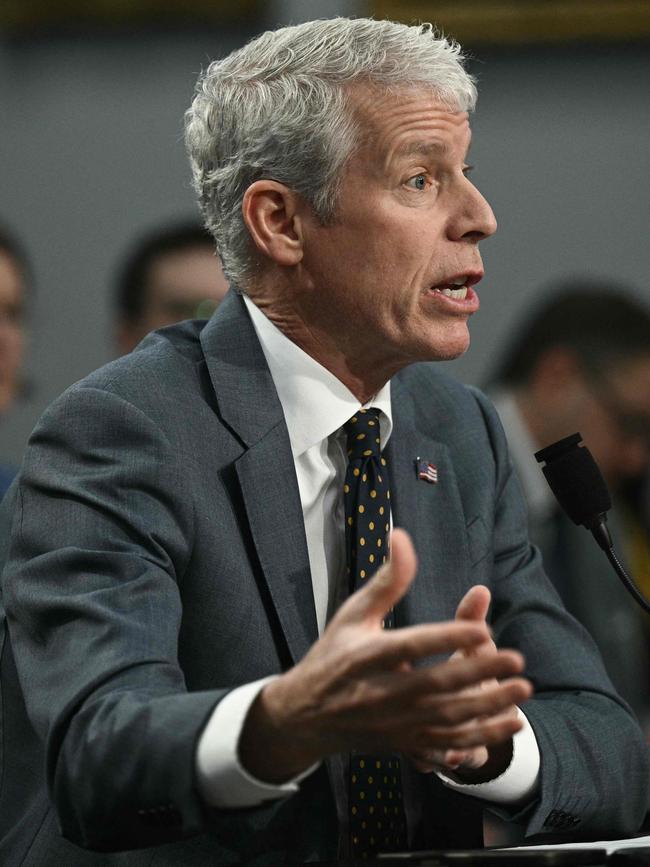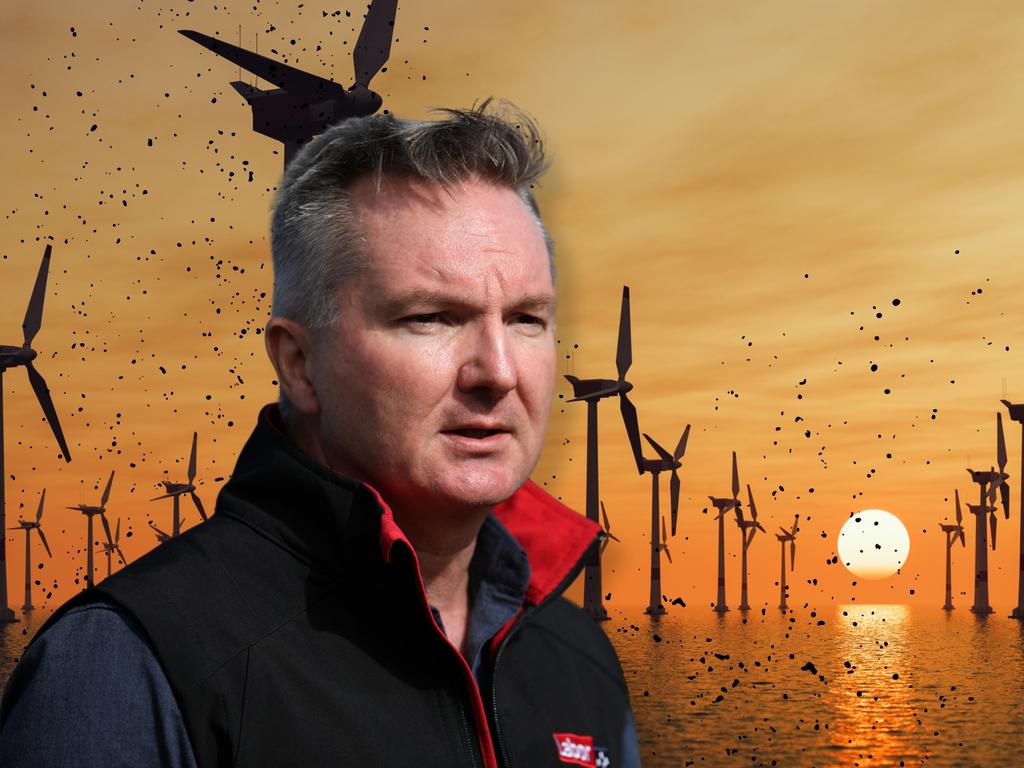
In these pages Bowen has declared victory, again, long before anything is actually won. He claims Labor’s win is an endorsement of a plan that derailed in the government’s first term.
Lest we forget, in 2021 Bowen claimed his energy blueprint would deliver a $275 electricity price cut based on modelling that now lies buried with the pledge. This proved so fanciful that $6.8bn in taxpayer money has been torched in subsidies to dull the power bill pain.
Like so many things omitted from the minister’s post-election victory dance is any claim electricity prices will fall in this term of government. If he had confidence in his rote declaration that wind and solar would soon deliver cheap power then he should have the courage of his convictions and tell us when this distant dream would be realised.
Bowen is also silent on when energy subsidies will end, exposing consumers to the true cost of this transition.
Let’s see how long the silent majority stays mute when that shoe drops. Or is the Ponzi scheme of recycling taxpayer dollars to partially compensate consumers for rising power prices now a permanent feature of the plan?

The minister is right about two things: “Australians want an affordable plan (and a) reliable energy grid.” His pathway won’t arrive at either destination and his essay is a study in selectivity.
The minister boasts that there are 10 times more solar arrays in Blacktown, a suburb in his western Sydney electorate, than in the wealthy digs of Bondi. That may be because 84 per cent of Bondi’s homes are flats and apartments, while 80 per cent of Blacktown homes are freestanding.
The alliteration is trite, the canard typical. People do like rooftop solar and it has its place, but the grid won’t run on it even if every house has a battery.
In boasting that three northwestern Sydney suburbs have the highest take-up rates for Labor’s electric vehicle discount the minister, again, makes interesting choices: Baulkham Hills, Marsden Park and Kellyville. All rank among western Sydney’s wealthiest areas.
The minister chides “conservative commentators … who don’t actually spend much time in regional and suburban heartlands”. If expecting honesty from politicians makes me a conservative, then consider me a digital Disraeli. And I lived in Sydney’s sprawling west for a decade in the 1980s and was a security guard at what was then called Mt Druitt Market Town.
The minister should publish a postcode guide to EV subsidy uptake rates so we can see where the hardscrabble suburbs near Mt Druitt sit. It’s a fair bet there are few Teslas in Tregear.
These sins of omission are common currency for the habitually intellectually dishonest “energy transition” boosters. As these two examples spotlight, among its many problems, building a weather dependent grid will deliver a profoundly unequal two-tiered energy system.
Wealthy homeowners enjoy government subsidies for their electric vehicles, rooftop solar and batteries. This reshapes the market in ways that disproportionately disadvantage those who can least afford it.
While solar-and-battery households still rely on the grid for backup, they contribute less to its upkeep. The fixed costs of maintaining poles, wires and dispatchable generation are increasingly borne in the bills of a shrinking pool of full-time users.
As more affluent households partially disconnect from the system, that burden shifts to renters, apartment dwellers and lower-income households who lack the means to opt out. The more the wealthy game the system, the more the energy-poor pay to keep this essential infrastructure running for everyone.
With each new subsidy Labor is presiding over a massive transfer of wealth from the poor to the rich. This is deeply regressive progress.
The minister also believes the election results signal widespread support for Labor’s offshore wind plans. Well, build some and prove it. And let’s see what happens to the price of electricity when the first one is plugged into the national electricity market.
The minister cites the CSIRO’s GenCost modelling as the only worthy measure of power prices in the energy debate. A better indicator is the real-world experiment playing out in your electricity bill.
But if GenCost is Bowen’s benchmark, he would know that it warned both nuclear and offshore wind were at risk of 100 per cent blowouts in their construction costs because they were first-of-a-kind builds for Australia.
The low-end cost for offshore wind is reckoned at an already expensive $135-$175 a megawatt hour. If construction costs follow the same trajectory as Snowy Hydro 2.0 the price rises to a breathtaking $217-$303/MWh.
Offshore wind projects around the world are being scrapped or delayed as rising costs, supply chain bottlenecks, regulatory hurdles and shifting political winds take their toll. In the US, Orsted cancelled its Ocean Wind 1 and 2 projects in New Jersey, while Shell withdrew from the Atlantic Shores joint venture.
In Britain, Orsted also axed its Hornsea 4 development, citing cost blowouts and financial risk. Ireland’s €1.4bn ($2.4bn) Sceirde Rocks project has been shelved and two South Australian offshore wind projects also have been dropped.

The international headlines on the path to net-zero carbon emissions by 2050 are equally dire and tell of a target in name only. US Energy Secretary Chris Wright has labelled net zero a “sinister” objective. China burns 58 per cent of the world’s coal, India’s fossil fuel consumption is rising sharply and Russia treats Western emission reduction targets as a joke. Those countries emit about 60 per cent of the world’s carbon; Australia is responsible for just over 1 per cent.
Re-engineering the electricity grid around the weather is proving absurdly expensive and diabolically difficult, as the recent blackout on the Iberian Peninsula proves. And that’s the easy part.
Finding ways to manufacture steel, cement, plastic and fertiliser without fossil fuel is still experimental, not a scalable reality. The cost of trying will be measured in the trillions.
A World Economic Forum report says the planet is spending about $3 trillion a year on the energy transition. To hit net zero, it estimates that figure will need to rise to $13.5 trillion annually by 2030 and exceed $15 trillion every year from 2031 to 2050.
No country is ever going to hit net zero without some very creative accounting. Whatever Australia does will be a futile and staggeringly expensive exercise in virtue signalling that will not make a jot of difference to the climate.
But virtue must be signalled if Bowen is to win the coveted job of president of the UN Climate Change Conference in 2026.
Let’s hope he gets it. Australians need to see the world’s climate brahmins and green grifters fly their private jets into Adelaide to promote energy rationing for the poor. Apparently, all it takes to save the planet is “more ambition”. And theirs is limitless, so long as they don’t pay the price and the taxpayer picks up the tab.






Election victories don’t deliver the kind of power that keeps the lights on. The grid relies on the unforgiving disciplines of physics and engineering, dynamics that Climate Change and Energy Minister Chris Bowen continues to treat as secondary to spin.